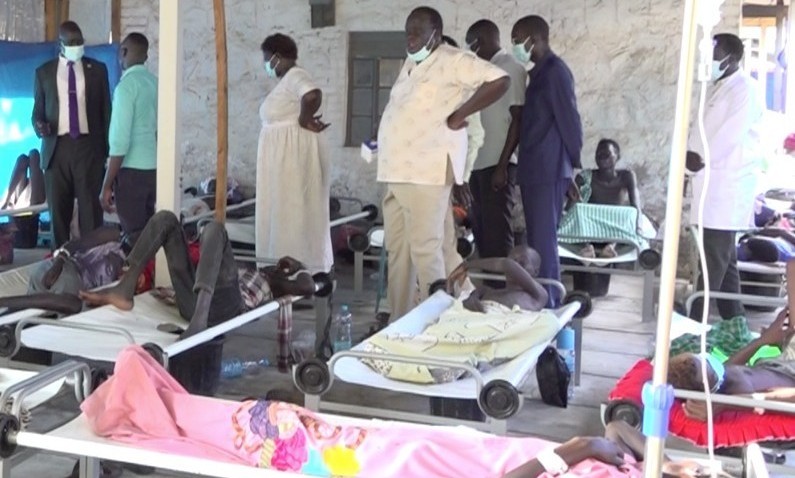
Juba Teaching Hospital health officials have raised alarm over a sharp rise in cholera cases, urging residents to seek immediate treatment and follow proper hygiene practices to curb the outbreak.
Speaking to the media, Dr. Annin Ngot Ngot, Undersecretary at the Ministry of Health, said the government has intensified its monitoring efforts as cases continue to surge.
“This is our fifth inspection at Juba Teaching Hospital. The cholera center is overwhelmed due to the daily increase in cases,” Dr. Ngot Ngot stated.
He urged residents to seek medical assistance at government hospitals and called on city authorities to enforce stricter food safety measures.
“We encourage people to visit government hospitals for treatment. Additionally, I have directed the Juba City Council to monitor food vendors along the roadside to ensure hygiene standards are upheld and minimize the spread of cholera,” he added.
Meanwhile, Dr. Isaac Maker, medical director of Juba Teaching Hospital, acknowledged the immense pressure frontline health workers are facing but reassured the public that treatment remains available despite ongoing challenges.
“Cholera can be deadly, but its management is simple,” he said. “Boil your water, maintain good hygiene, and seek medical help immediately if you experience diarrhea or vomiting. Our nurses are available 24 hours a day, even though they have not received their salaries.”
Health workers at the cholera treatment center are struggling to accommodate the influx of patients. Lucia Thomas Loro, the facility’s supervisor, shared alarming statistics and personal accounts of the outbreak’s impact on vulnerable groups.
“Cases were initially low at the end of March, but they have surged dramatically in April. We have already lost several lives, including a pregnant woman with anemia and two children who died just upon arrival,” Lucia explained.
She highlighted the difficulties in treating pediatric cases due to inadequate space and resources.
“We only have two rooms, which is not enough. Three or four children are forced to share a single bed. Just yesterday, four children had to sleep on one bed. This is a major problem, and we are urgently calling on local organizations for support,” she said.
According to the Ministry of Health, South Sudan has recorded over 45,000 confirmed cholera cases and more than 800 deaths across nine states and two administrative areas. Children remain the most affected demographic.

